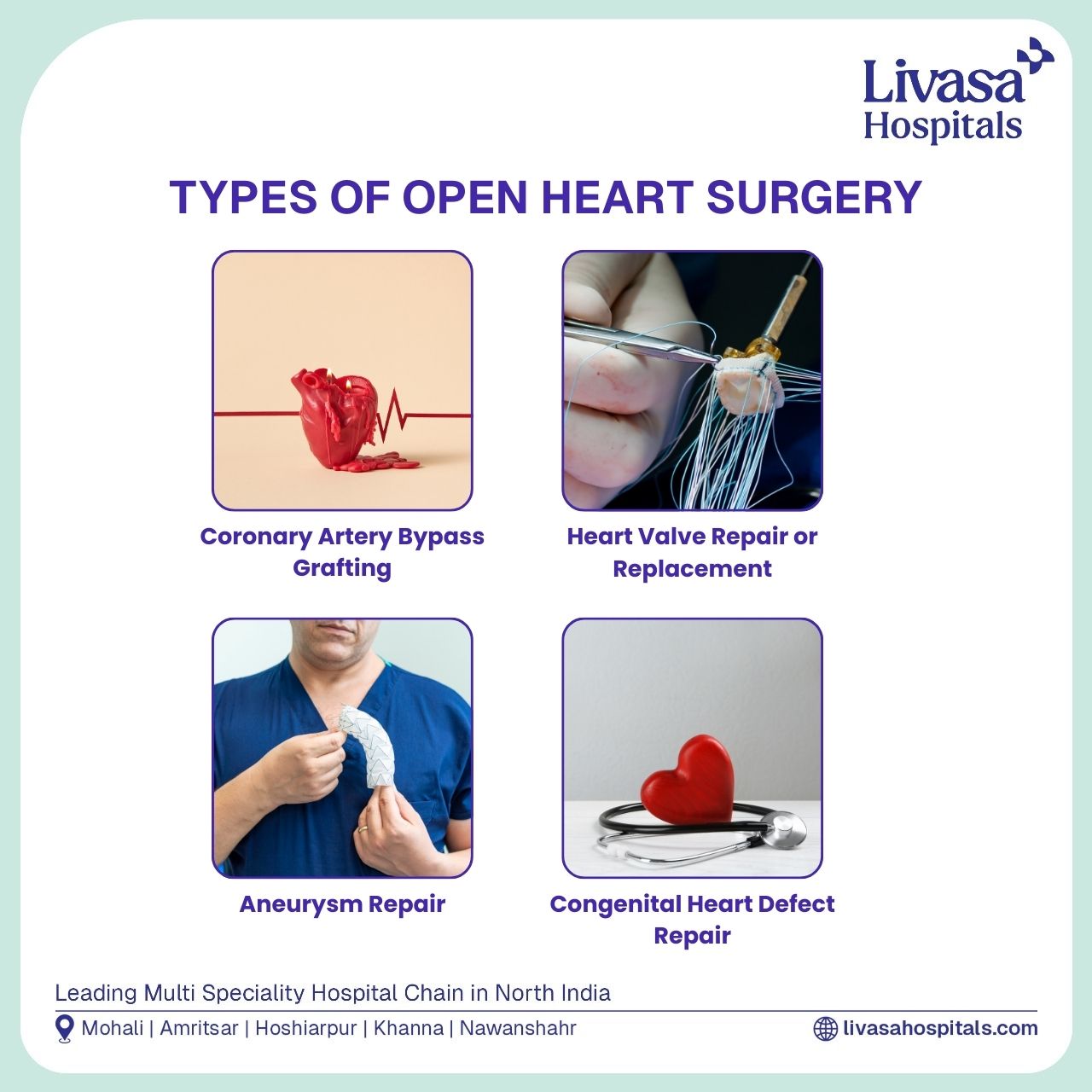03 Feb 2026
Rhinoplasty Revision Surgery in Mohali: Cost When Your First Nose Job Fails

Dr. Harinder K Bali
21 May 2025
Call +91 80788 80788 to request an appointment.
Open heart surgery is a significant medical procedure that involves addressing abnormalities in the heart by accessing the heart through the chest wall. It is often deemed necessary for various cardiovascular conditions, including coronary artery disease, congenital heart defects, and heart valve disorders. Understanding the success rates and potential risk factors associated with this surgery can be crucial for patients and their families as they navigate the complex landscape of cardiac care.
With advancements in medical technology and surgical techniques, open heart surgery has become safer and more effective over the years. However, considering the specific situation and health background of each patient is vital in determining the potential outcomes of the procedure. This blog aims to provide an in-depth look at the success rates of open heart surgery, the risk factors that may influence these rates, and what patients can expect before, during, and after the surgery.
Open heart surgery refers to a range of procedures in which the chest is opened to access the heart. During this surgery, the heart may be temporarily stopped while a heart-lung machine takes over its function. This allows the surgeon to work on the heart without blood flow interfering with the procedure.
Common types of open heart surgery include:

Each of these procedures aims to improve the heart's function and alleviate symptoms, potentially increasing the patient's longevity and quality of life.
Open heart surgery's success rates can vary significantly based on various factors, such as the specific type of procedure, the patient’s overall health, age, and existing medical conditions. According to recent studies, the average success rate for open heart surgery typically ranges between 85% to 98%.
In a detailed overview of success rates:
| Procedure Type | Success Rate |
|---|---|
| Coronary Artery Bypass Grafting (CABG) | 95% |
| Heart Valve Surgery | 90% to 95% |
| Congenital Heart Surgery | 85% to 90% |
Specific success rates can be influenced by numerous factors, including a patient’s pre-existing health conditions, the skill and experience of the cardiac surgery team, and the overall care provided during the recovery process.
Before undergoing open heart surgery, it is essential for patients to understand the various risk factors that could impact their surgery outcomes. Some of the common risk factors include:
Prior to surgery, patients should undergo a comprehensive risk assessment, allowing the healthcare team at Livasa Hospitals to tailor the most effective approach to care based on individual needs.
Before undergoing open heart surgery, several crucial pre-operative considerations should be discussed with the medical team:
At Livasa Hospitals, our cardiac surgery experts in Punjab provide individualized care plans to prepare patients and minimize risks ahead of an operation.
The experience of open heart surgery can vary depending on the procedure complexity, yet some key elements are consistent across various operations:
Each procedure can take several hours, and throughout this time, monitoring equipment closely observes vital signs.
Recovery following open heart surgery is a vital aspect of the process, often requiring significant time and care. The following are critical stages of post-operative recovery:
Full recovery can take several weeks, and at Livasa Hospitals, our dedicated cardiac care team is committed to guiding patients through each step of the rehabilitation journey.
The long-term outcomes for patients who undergo open heart surgery can be quite positive, with many reporting significant improvements in their quality of life and heart health. Research indicates that the majority of patients experience improved longevity and reduced symptoms of heart disease post-surgery.
Patients are encouraged to maintain a heart-healthy lifestyle, including:
With the right approach to follow-up care, patients can enjoy a fulfilling life well after their open heart surgery.
Open heart surgery is a formidable yet often essential procedure that can significantly enhance patients' health and quality of life. While the risks and recovery may seem daunting, advancements in cardiac care have led to high success rates and improved patient outcomes.
Understanding the nature of heart surgery, assessing personal risk factors, and adhering to a structured recovery plan can create a pathway to successful healing. At Livasa Hospitals, we offer advanced cardiac care in Punjab, led by some of the top heart surgeons in Punjab, committed to supporting you through every step of your heart health journey.
If you or a loved one are considering open heart surgery or wish to learn more, please book an appointment at Livasa Hospitals today, or call us at +91 80788 80788 for further information.
Rhinoplasty Revision Surgery in Mohali: Cost When Your First Nose Job Fails
Plastic Surgery After Massive Weight Loss: Body Contouring Packages in Mohali
ENT + Cosmetic in Mohali: Septoplasty for Breathing with Cosmetic Rhinoplasty Offers
Livasa Healthcare Group Corporate Office,Phase-8, Industrial Area, Sector 73, Sahibzada Ajit Singh Nagar, Punjab 160071
| Mohali | +91-99888 23456 |
| Amritsar | +91-99887 49494 |
| Hoshiarpur | +91-99883 35353 |
| Nawanshahr | +91-75081 82337 |
| Khanna | +91-98888 05394 |